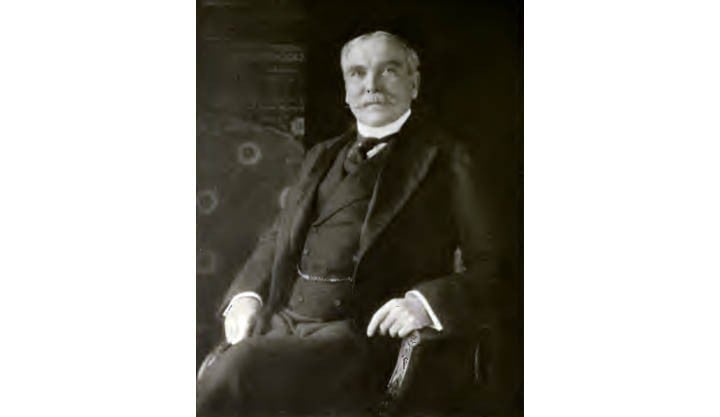

Very few historians have cast such a profound influence on shaping the historical sensibility of the South Asian Muslims as William Wilson Hunter (1840-1900). Generally believed to be intelligent, perceptive and able, Hunter was the leading British historian of India in the closing decades of the nineteenth century. He was a Scottish historian, statistician, a compiler and member of the Indian Civil Service. He was the son of Andrew Galloway Hunter, a Glasgow manufacturer.
He started his education in 1864 at Quaker Seminary at Queenwood, Hampshire. After a year he joined the Glasgow Academy. He did his Bachelor of Arts from Glasgow University in 1860, and later on proceeded to Paris and Bonn for further education. Simultaneously, he acquired a knowledge of Sanskrit and it was in 1862 that he passed the Indian Civil Service exam.
His earliest works on India, Annals of Rural Bengal, which was published in 1868, makes him a pioneer in economic studies which he conducted from a historical perspective. W. W. Hunter’s Indian Mussalman (1876) is testimony to his unusual insight into the socio-cultural makeup of the Muslim community. Then he edited the Rulers of India series, and the Imperial Gazetteer of India was also composed under his vigilant eye. He started working on the Gazetteer in 1869 and it was eventually published in nine volumes in 1881 and later as a 26-volume set after his death. However, by far the most important historical work which Hunter rightfully took pride in was History of British India (1899). He died on the eve of completing the second volume of this monumental piece of history.
I found Hunter’s Annals of Rural Bengal extremely important because it gives a fresh interpretation to the discourse of modern Indian history. Before the publication of that book, the history of the British period was mostly presented in the form of what Eric Stokes observed were "biographies of English governors of India nor histories of the Indian people. The silent million bear our yoke have found no annalist". He aimed at mapping the historical growth of the peoples of Bengal, and then tracing the early effects of British rule on the society at large.
He readily accepted the notion of common alien stock and then sought to explain why strong nationalities failed to evolve in the subcontinent as it happened in Europe, a defect which had rendered the foreign conquest inevitable. He found his answer in the institution of caste, which had its origin in racial distinction between conquering the Aryans and the aborigine of India. He traced the successive Aryan migrations into Bengal, he demonstrated how cohabitation between the Aryans and the aborigines had resulted in mixed casts.
The refusal of the pure Aryan tribes to mix socially with the latter and their treatment of the helot class had prevented the growth of a homogenous society with a common nationality. All the manual labour was assigned to the mix castes. Consequently, the Brahmins became slothful and effeminate and had been unable to resist conquest by successive waves of more vigorous people descending on to India form the North West.
In Annals of Rural Bengal, Hunter envisages the role of the British as one of breaking down all physical, racial and social barriers in preparation for creating a united Indian nation. Efforts carried out previously to bring unity in India failed to bear fruits because the material means were inadequate to overcome the physical obstacles.
He also wrote a novel The Old Missionary as well as a biographical account titled The Thackerays in India.
The history of British India purported to show that the connection between Britain and India was not a strange and fortuitous accident, but the outcome of a protracted process beginning with Britain ascendency to greatness in the Elizabethan times. The British rise to greatness was "no sudden triumph but an indomitable endurance during a century and a half (600 to 750) of frustration and defeat." It is the nation which Hunter stressed as the dominant factor in the English fortunes in the East. The geographical size had little to do with the success of the European idea of nationhood. Eric Stokes observes, as if articulating the sense epitomised in Hunter’s historical projection of Britain, "the prize fell successively to states small in area but of great heat."
The history of British rule in India, Hunter maintains, "stands out as epic of the British nation …. It will make the world understand the British race -- adventurous, masterful, patient in defeat and persistent in executing its designs".
Hunter was of the view that each stage in the history of British rule in India was one of constant readjustment to the forces of history that Britain has itself set in motion. For this reason alone he believed that a place had to be found for the western educated classes in India and that was impossible to rule modern India through the foreign bureaucracy alone. By the planned introduction of modern life Britain was to lead India into the modern world with parental authoritarian hand.
In 1882 Hunter as a member of the governor general’s council presided over the commission on Indian education; in 1886 he was appointed as the vice chancellor of the University of Calcutta. In 1887, he retired from the service, and he was awarded KCSI and settled in Oaken Holt near Oxford.
In the winter of 1898-99, as the result of the fatigue incurred in a journey to the Caspian and back, on a visit to the sick bed of one of his two sons, Hunter was stricken down by a severe act of influenza which affected his heart.
Hunter was one of the major influences on Sir Syed Ahmed Khan’s reform movement, and the general perception about him is that of a benevolent and kind person, well-disposed towards Indian Muslims, which indeed was a rarity in the wake of the events of 1857.